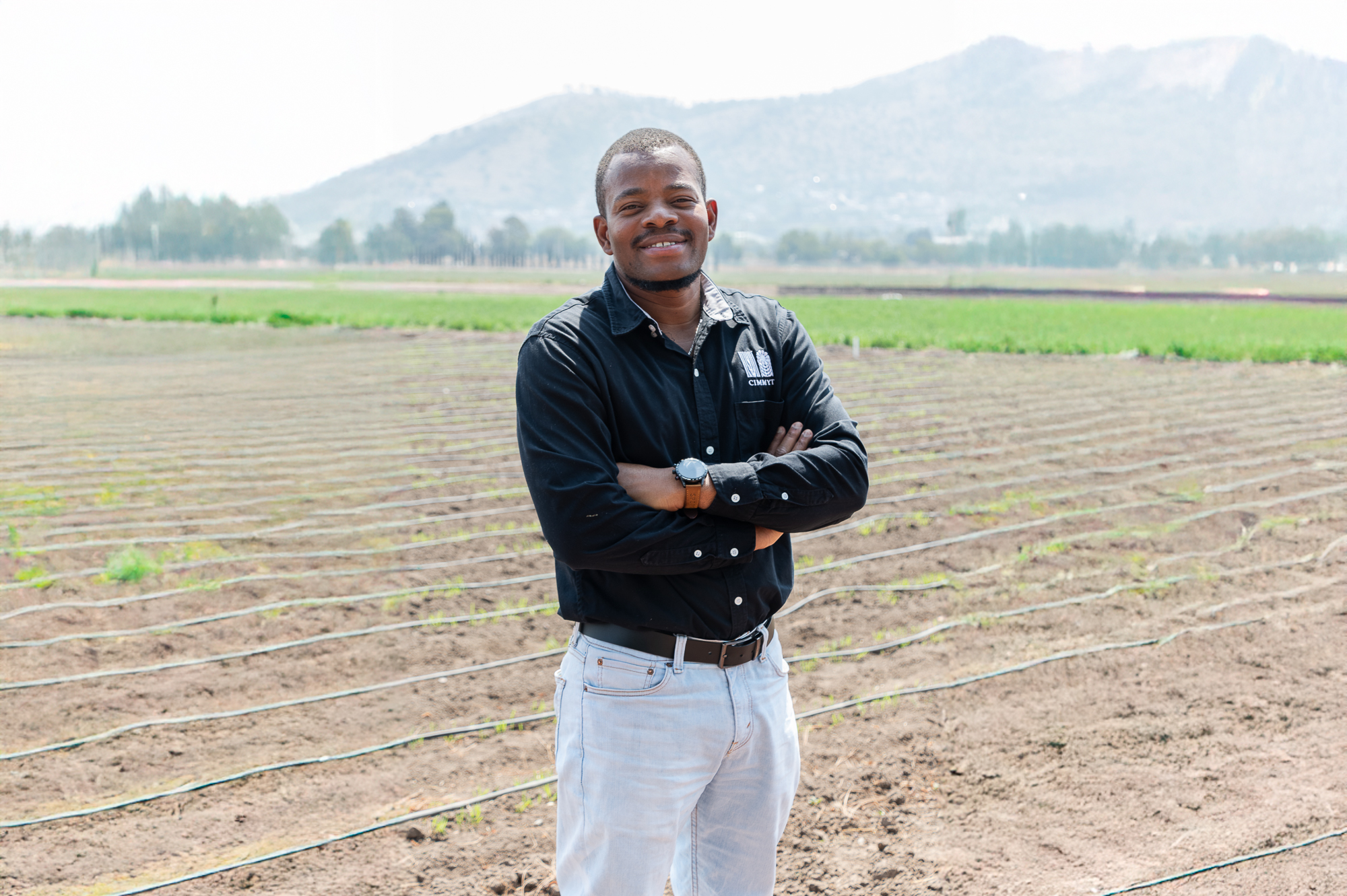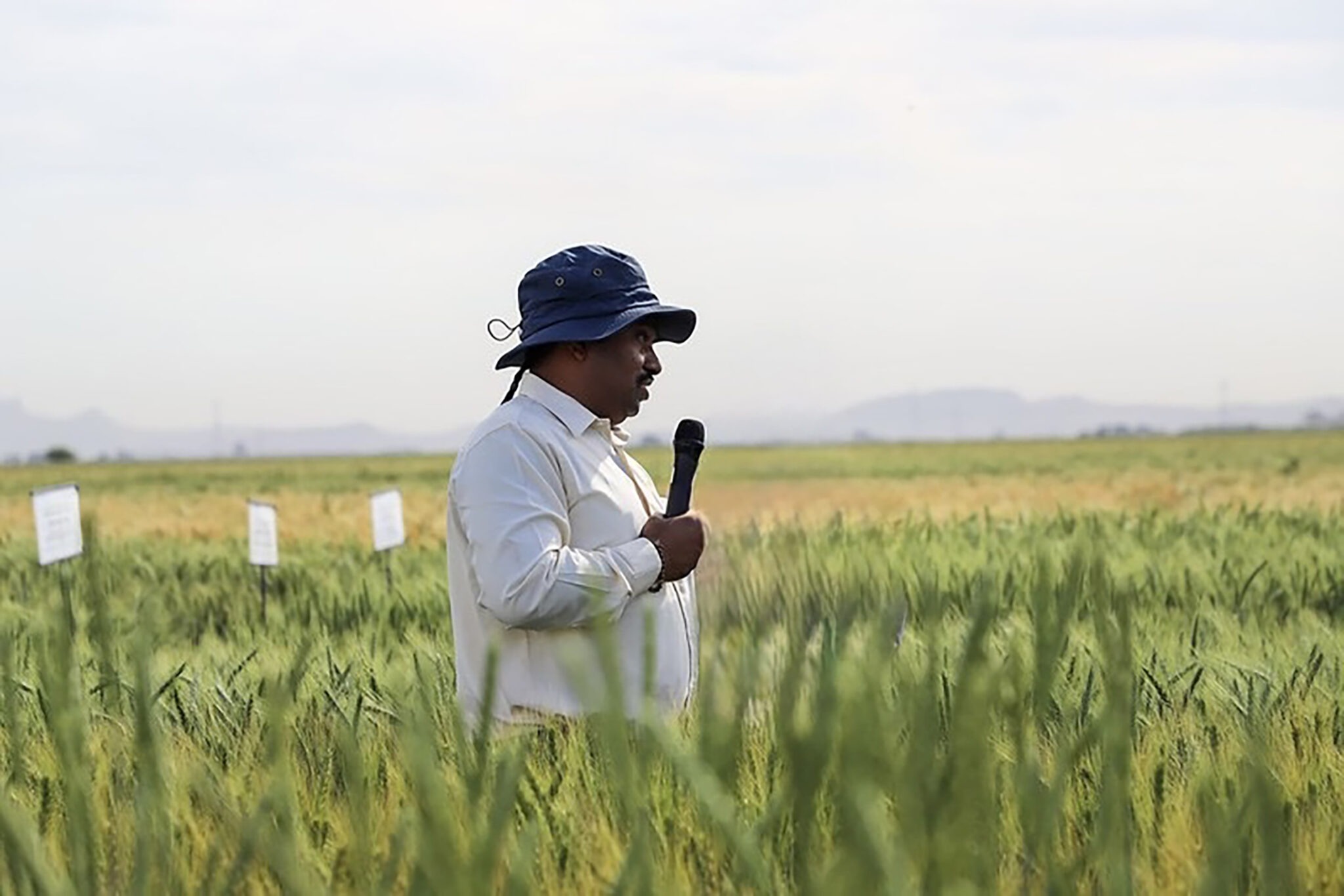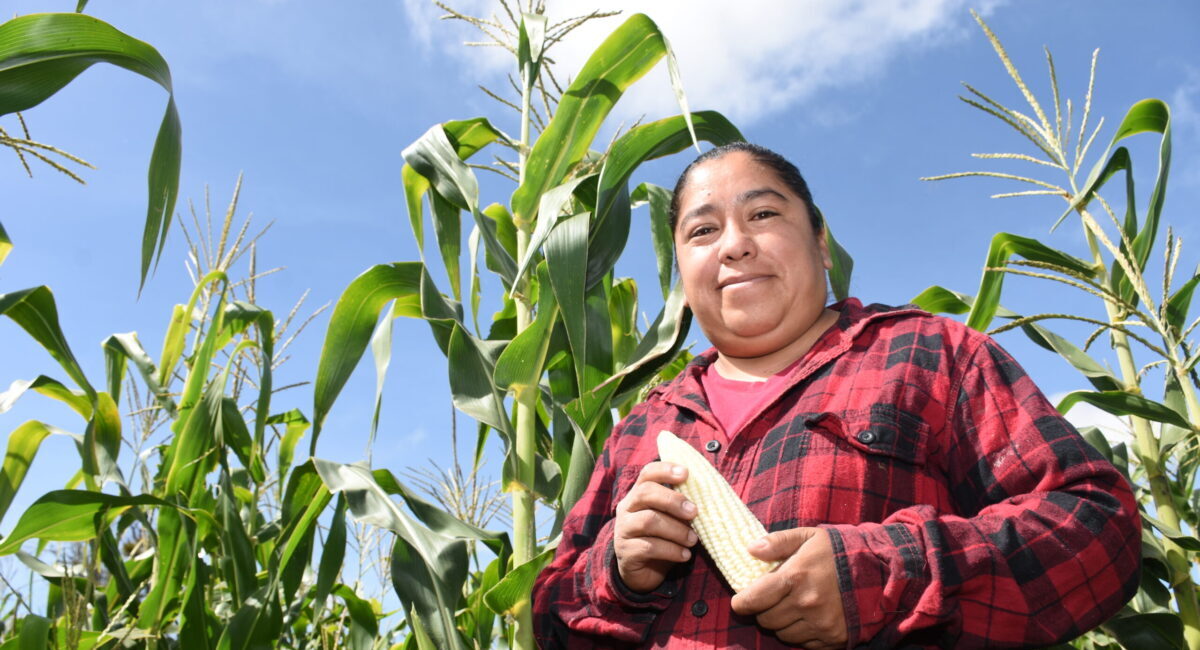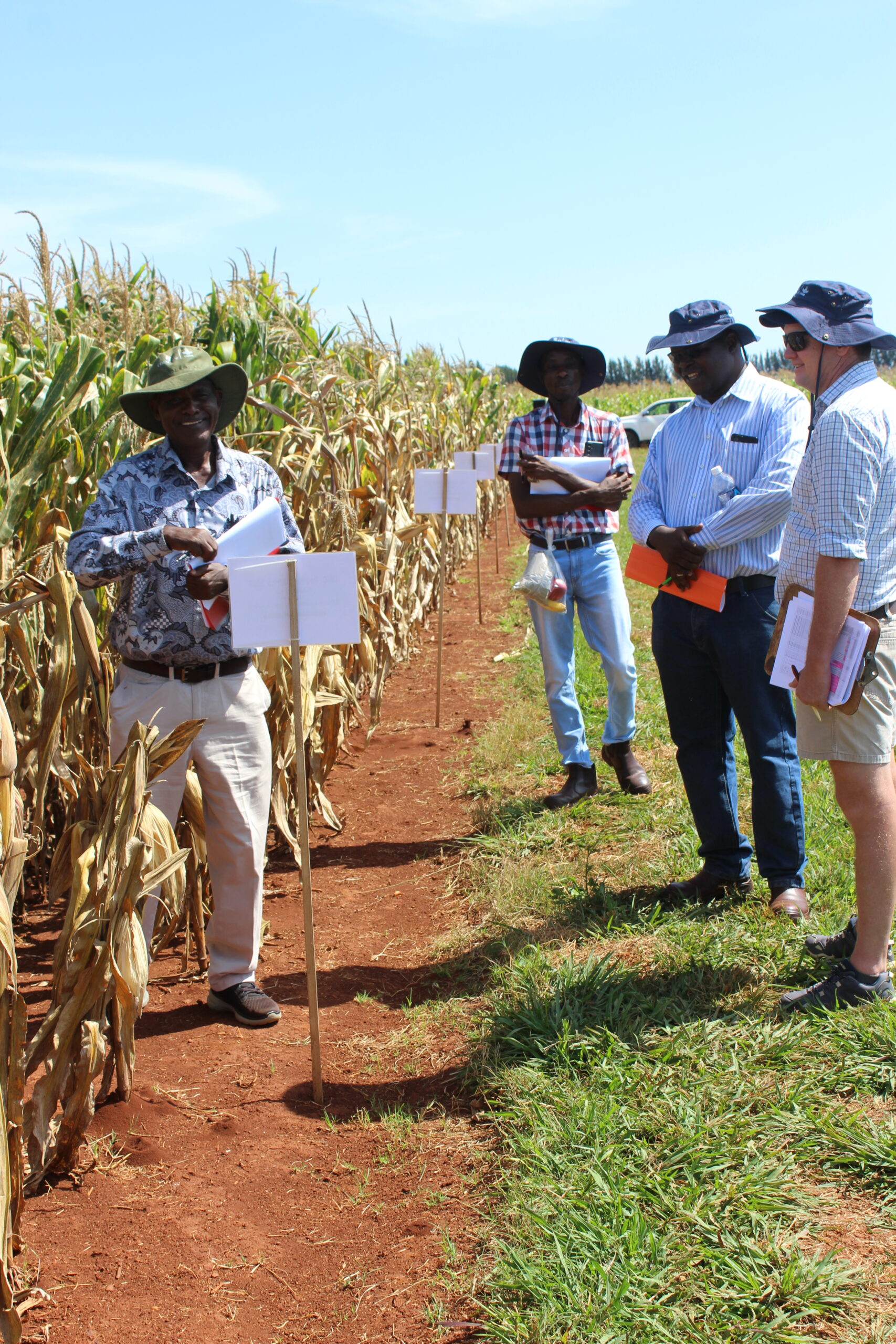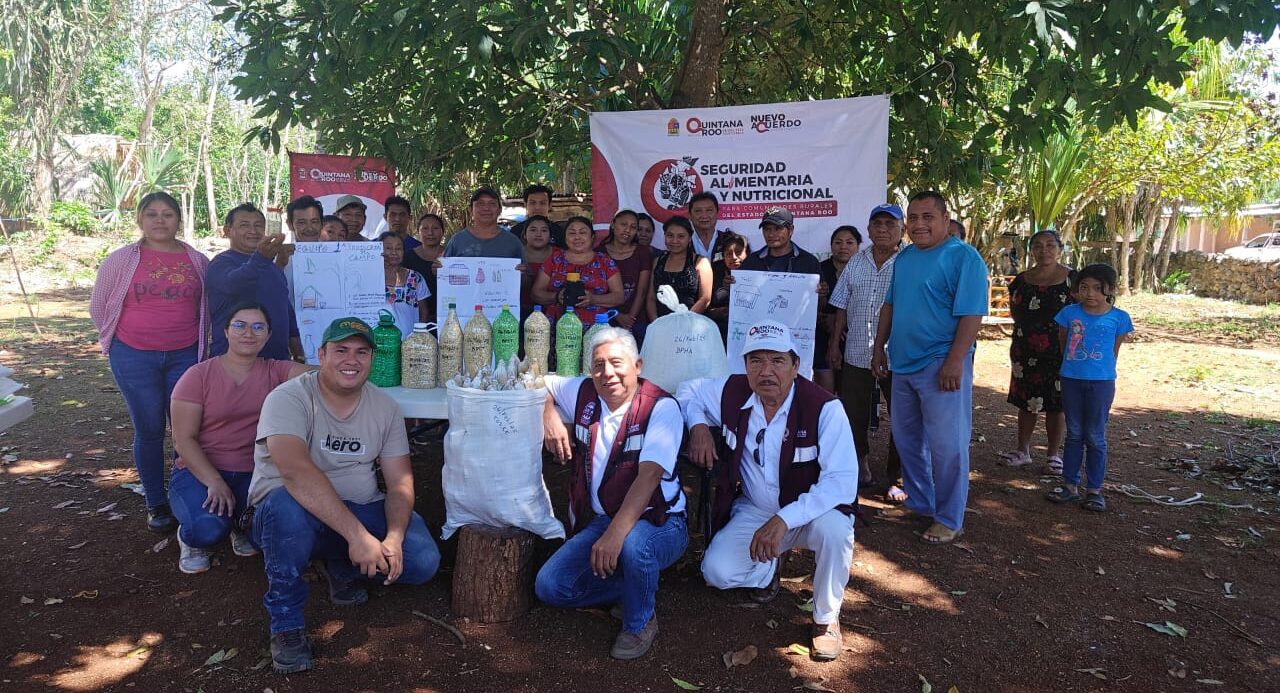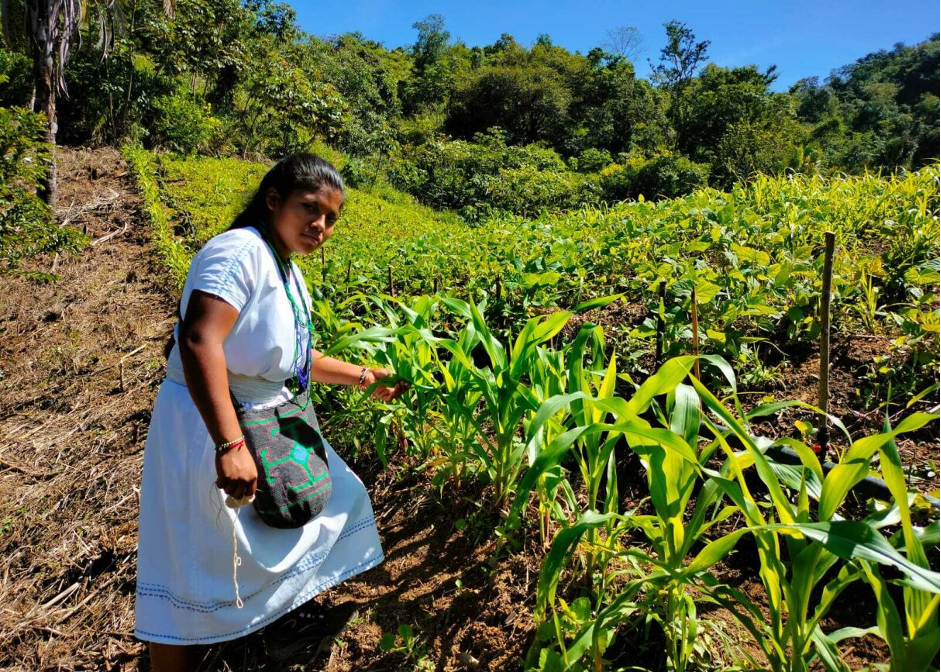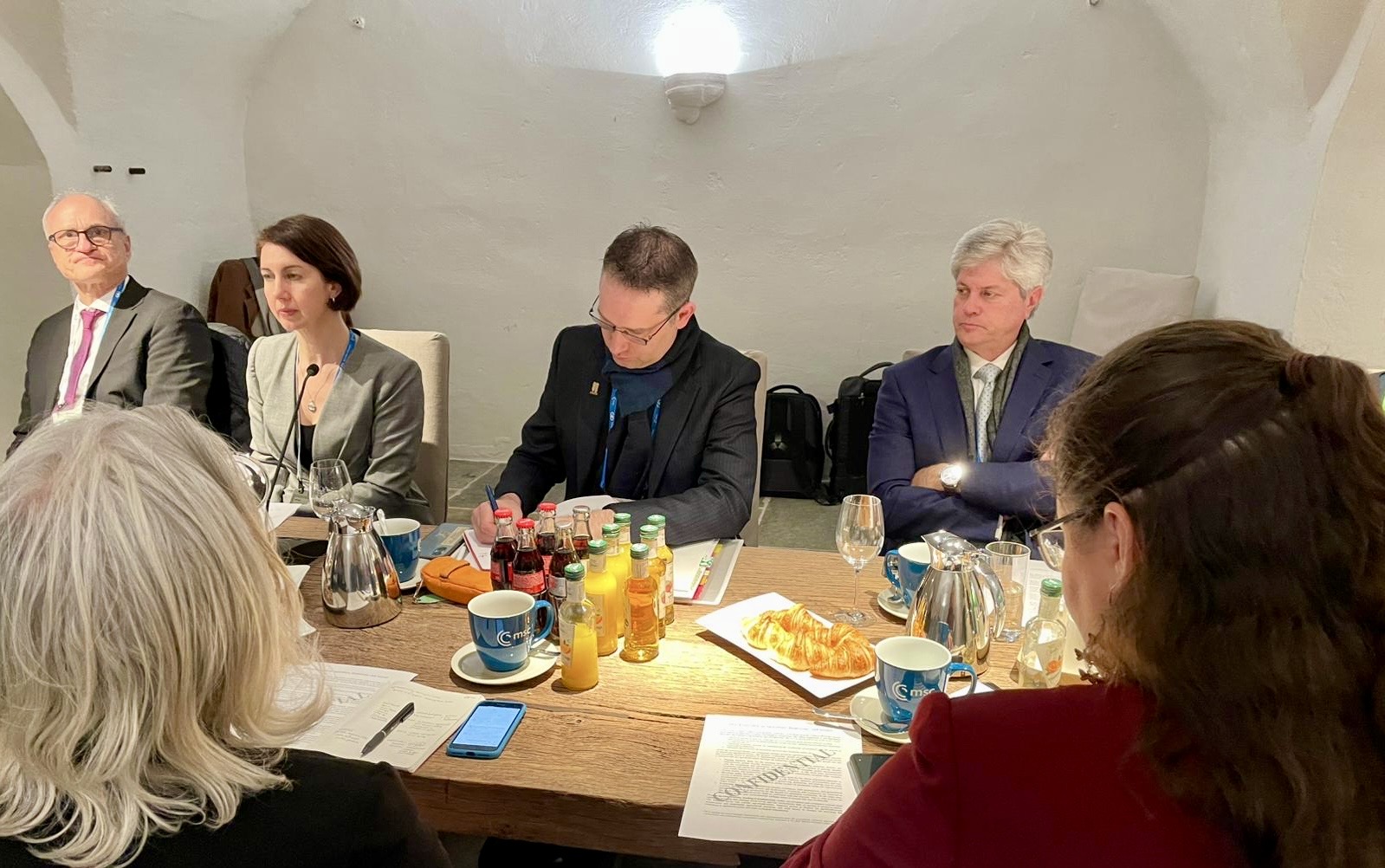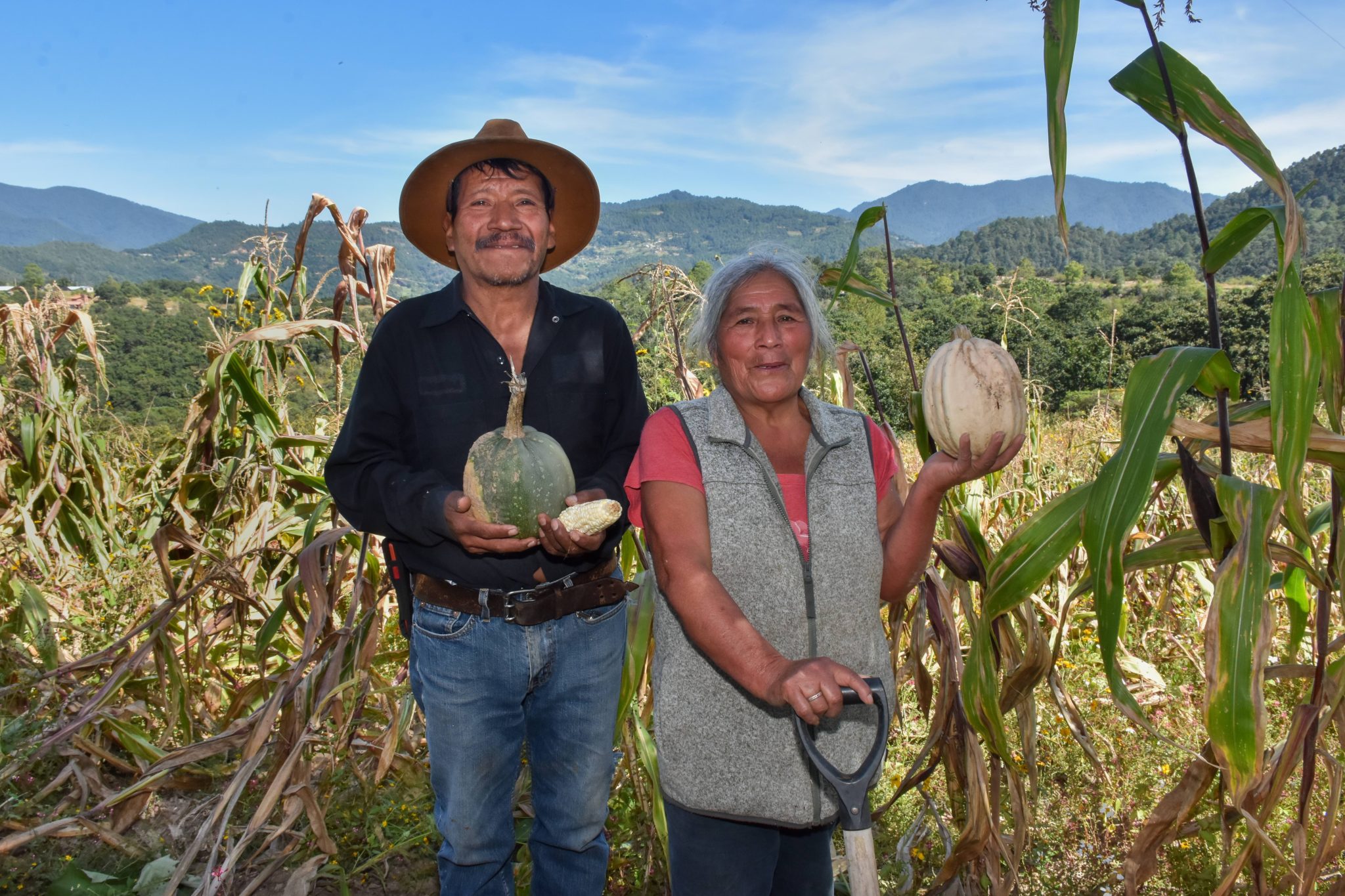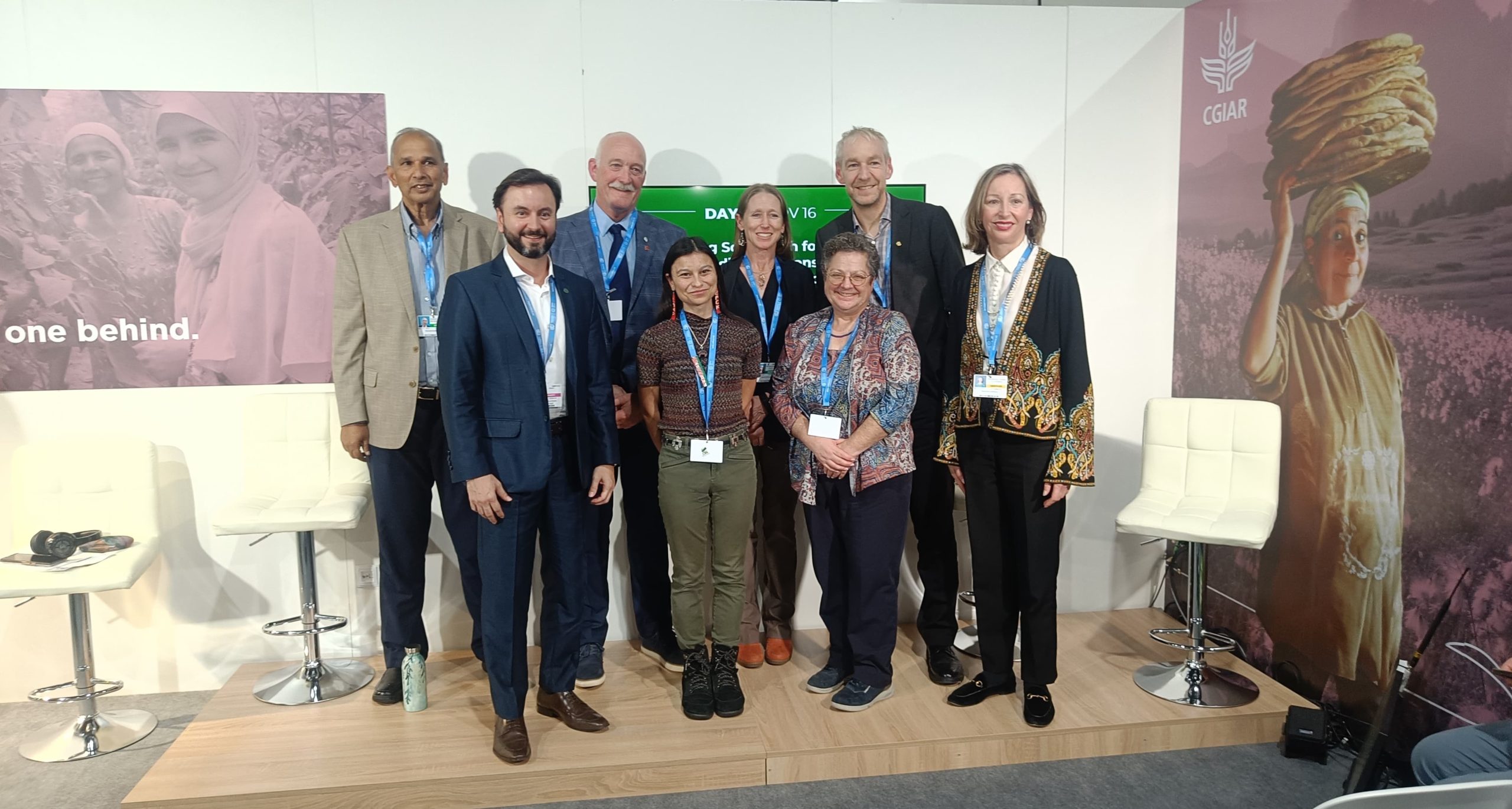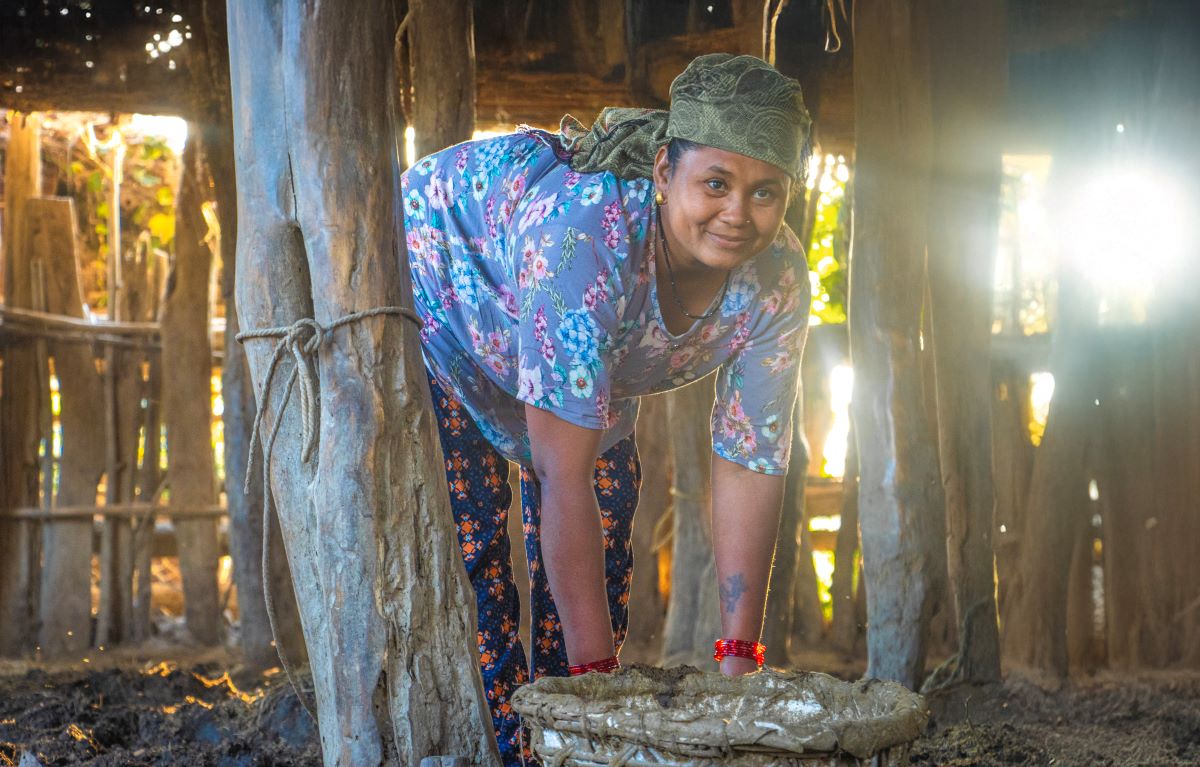Environmental health and biodiversity
The world needs better management of water, soil, nutrients, and biodiversity in crop, livestock, and fisheries systems, coupled with higher-order landscape considerations as well as circular economy and agroecological approaches.
CIMMYT and CGIAR use modern digital tools to bring together state-of-the-art Earth system observation and big data analysis to inform co-design of global solutions and national policies.
Our maize and wheat genebanks preserve the legacy of biodiversity, while breeders and researchers look at ways to reduce the environmental footprint of agriculture.
Ultimately, our work helps stay within planetary boundaries and limit water use, nutrient use, pollution, undesirable land use change, and biodiversity loss.
Tips for diversifying crops and improving the functionality of agricultural systems
 Climate adaptation and mitigation
Climate adaptation and mitigation
Diversifying cover crops and legumes enhances the functionality of agricultural systems by strengthening the soil, reducing pest pressure, and increasing climate resilience
Fungal Resistance in Wheat: Biodiversity & Food Security
 Environmental health and biodiversity
Environmental health and biodiversity
Source: Time News ()
Researchers identified rust-resistant genes in traditional wheat, aided by CIMMYT’s biodiversity efforts
Positioning Soil Health on the Agenda: Bridging Science, Policy and Advocacy
 Climate adaptation and mitigation
Climate adaptation and mitigation
Source: Coalition fo Action 4 Soil Health ()
CIMMYT, as co-leader of the VACS initiative, is driving global efforts to scale soil health solutions by linking science, policy, and climate-resilient agriculture
Proudly announcing the 2025 Derek Tribe Award recipient – Velu Govindan
 Capacity development
Capacity development
CIMMYT’s Dr. Velu Govindan wins the 2025 Derek Tribe Award for advancing climate-resilient, nutrient-rich wheat to boost global food security.
Women Who Nourish the Earth: Yuridia Hernández and the Feminine Strength in Sustainable Agriculture
 Environmental health and biodiversity
Environmental health and biodiversity
Yuridia Hernández leads a network of women producers in the Mixteca region of Oaxaca who, like the land they cultivate, regenerate, sustain, and transform their plots through sustainable practices and collective work.
Small grains and new methods bring resilience to Zimbabwean farmers
 Climate adaptation and mitigation
Climate adaptation and mitigation
Source: Development and Cooperation (12 May 2025)
IMIC-Africa Field Day 2025: Where science meets collaboration to accelerate maize innovation in Africa
 Capacity development
Capacity development
IMIC-Africa Field Day 2025 brought together science, seed innovation, and collaboration across Africa to fast-track resilient, high-yield maize solutions from lab to farm.
With Innovations, They Protect Maize Biodiversity
 Capacity development
Capacity development
Empowering rural women in Quintana Roo through training and inclusive innovation, this initiative strengthens native maize conservation, enhances food security, and promotes gender equity in agriculture
Positive Solutions for Nature in Colombia: A Review
 Environmental health and biodiversity
Environmental health and biodiversity
CIMMYT is helping farmers in Colombia conserve native maize, strengthen seed systems, and connect with niche markets through the CGIAR led Nature+ initiative, promoting biodiversity, inclusion, and sustainable livelihoods
Munich Statement on Agriculture, Biodiversity and Security: there is no security without food security
 Climate adaptation and mitigation
Climate adaptation and mitigation
At the 2025 Munich Security Conference, CIMMYT led the call to endorse the Munich Statement on Agriculture, Biodiversity, and Security, highlighting resilient food systems and agricultural biodiversity as cornerstones of global peace and stability
Trade Partnerships and Industry Milestones
 Environmental health and biodiversity
Environmental health and biodiversity
Source: Mexico Business News ()
The State of Mexico, CIMMYT, and UNAM are supporting native corn preservation through financial aid, research, and seed donations to enhance biodiversity and sustainable farming
The land that gives life: Tomasa and Fabián’s plot
 Capacity development
Capacity development
Farmers Fabián and Tomasa cultivate with both tradition and science, using sustainable practices that nourish their land and their community
The 29th Conference of the Parties (COP29): Navigating Food Systems and Climate Challenges
 Climate adaptation and mitigation
Climate adaptation and mitigation
At COP29, CIMMYT highlighted science-driven innovations to transform food systems and strengthen climate resilience
Sustaining Health and Soil: Sundhani Tharu’s 4Rs Approach to Farming
 Environmental health and biodiversity
Environmental health and biodiversity
Sundhani Tharu, a farmer from Nepal, is transforming her community through sustainable farming practices, blending tradition with innovation to nurture healthier soils, crops, and lives
Exploration of options for functional seed systems and understanding of market needs for cereals and pulses in sub-Saharan Africa
 Environmental health and biodiversity
Environmental health and biodiversity
The Seed Systems and Market Intelligence team of CIMMYT’s Sustainable Agri-Food Systems Programme met in Kenya for a three-day retreat to review cutting-edge research on seed systems and market dynamics.
